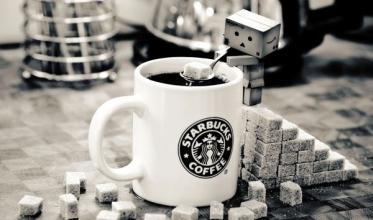Determine the characteristics of coffee, four flavors and one fragrance-- five characteristics of coffee
All the color, aroma and taste of coffee are characterized by some chemical changes in raw coffee beans after baking.
◎ bitterness: caffeine, one of the basic flavor elements of coffee.
◎ sour taste: = = tannin acid, the second basic flavor element of coffee.
◎ concentrated alcohol: = = strong coffee. It smells mellow.
◎ sweetness: when the sugar in the raw beans of coffee is partially coked after the baking process, the rest is sweet.
◎ (coffee): fat in raw beans of coffee. Protein. Sugars are an important source of aroma.
What is the attractive charm of coffee? Its appropriate bitter taste, fragrant mellow, plus the charm of caffeine.
Caffeine has the effect of stimulating the central nervous system or muscles, which can restore muscle fatigue, improve work efficiency, have a sober effect and make the mind lively and sensitive.
There is also asthma caused by stimulation of the sympathetic nerve, which can suppress the excitement of the parasympathetic nerve.
Other coffee also has the effect of helping digestion, especially when eating meat, more gastric juice is secreted, promote digestion and prevent gastroptosis. Since caffeine can break down fat, after eating foods with high calories, Westerners must want everyone to have a cup of coffee.
A 1994 Barrett Connor study found that caffeine intake affected bone mineral density reduction only in women who were limited to one glass of milk a day as adults. According to this study, and by common sense, coffee can only indirectly cause a lack of calcium balance-for example, some women use it instead of calcium-rich drinks.
In 1995, Barger-Lux and Heaney analyzed data from 190 women and concluded that "one glass of milk provides enough calcium to offset the negative effects of eight cups of caffeine, ┅," underscoring the fact that caffeine is not a high risk factor for osteoporosis, inadequate calcium intake is the main cause, and secondary factors, such as caffeine, have an effect.
Coffee has the effect of eliminating garlic flavor and contains enamel, so coffee is an indispensable drink after tasting garlic cuisine.
A study in the 1980s showed that men who drank five or more cups of coffee a day for long periods of time were more likely to have a heart attack. But a recent study found that women who drank less than five cups of coffee a day did not have an increased risk of heart disease, and women who drank more than six cups a day did not seem to have an increased risk of heart attack.
In addition, coffee also has a deodorizing effect. The residue brewed with ground coffee can be dried in a container, put in the refrigerator, or in a shoe box can be used as deodorant. Sprinkling it on an ashtray can also eliminate the smell of tobacco. Coffee can also be used to hide the taste. For example, instant coffee is melted in boiling water so that its taste can be touched on the meat and become a sweet and delicious meat dish.
Delicious coffee is a refreshing drink, and new research has found that drinking a few cups of coffee a day can prevent gallstones.
Does a lot of caffeine in coffee affect your health? Maybe some people will be so worried. However, there is no problem with the amount of two to three cups of coffee. on the contrary, moderate drinking of coffee has an effect on the body. Have a correct understanding of coffee, so that everyone can drink happily and enjoy coffee time!

Important Notice :
前街咖啡 FrontStreet Coffee has moved to new addredd:
FrontStreet Coffee Address: 315,Donghua East Road,GuangZhou
Tel:020 38364473
- Prev

Introduction to the proportion of hand-flushed water and flour in Arabica coffee
Arabica coffee beans introduce the Arab method of brewing coffee, which is quite different from other methods of brewing coffee. Traditionally, the Arab method is to brew the coffee three times. Coffee made in boiling water can easily boil off the aroma of coffee, but it is the most romantic way to make heavy-flavored coffee. Arabica coffee is always brewed in the same place, a small copper pot with a long handle
- Next

I've been fooling around for a year. Let's have an aimless cup of coffee.
By the end of the year, I had a chat with many friends in the industry recently. every time I sat down, they would ask me, "tell me, what are you going to do next year?" I understand very well, folks, that almost all the conversations you may hear at this time revolve around how to do it next year, and countless media and suppliers will try their best to make an appointment with you.
Related
- Beginners will see the "Coffee pull flower" guide!
- What is the difference between ice blog purified milk and ordinary milk coffee?
- Why is the Philippines the largest producer of crops in Liberia?
- For coffee extraction, should the fine powder be retained?
- How does extracted espresso fill pressed powder? How much strength does it take to press the powder?
- How to make jasmine cold extract coffee? Is the jasmine + latte good?
- Will this little toy really make the coffee taste better? How does Lily Drip affect coffee extraction?
- Will the action of slapping the filter cup also affect coffee extraction?
- What's the difference between powder-to-water ratio and powder-to-liquid ratio?
- What is the Ethiopian local species? What does it have to do with Heirloom native species?

